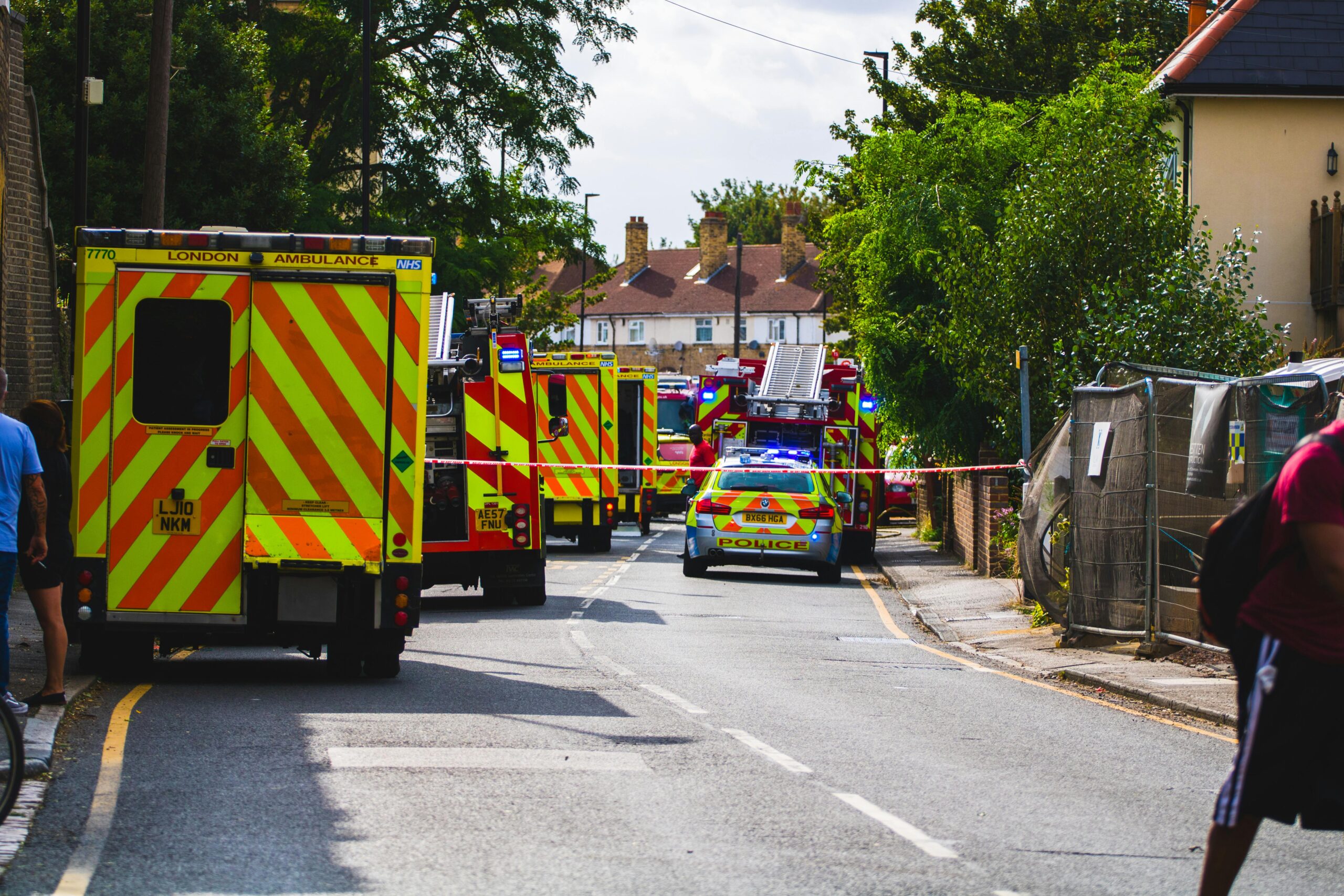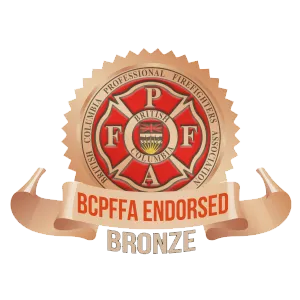First responders, such as firefighters and police officers, often encounter traumatic events that can have long-lasting effects on their mental well-being. Professionals are more likely to develop post-traumatic stress disorder (PTSD) as a result of experiencing or witnessing traumatic events, enduring chronic stress, or cumulative trauma.
According to a 2018 report, Canadian police officers are three to five times more likely to experience symptoms of mental illness compared to the general population. Additionally, one in three officers exhibits mental health symptoms falling within the clinical diagnostic range for PTSD.
In addition, a 2016 report revealed that 17% of Canadian firefighters experience post-traumatic stress disorder (PTSD), a significant difference compared to the 1% prevalence of the same condition within the general population.
Both firefighters and police officers should possess a fundamental understanding of PTSD and its symptoms. This knowledge facilitates the identification of potential signs in themselves or their colleagues, marking the initial step toward assisting those affected by the condition.
Beyond recognizing PTSD symptoms, they can benefit from acquiring knowledge about trauma and its impact on the body and mind. This understanding aids in self-awareness, enabling them to comprehend their reactions to traumatic events and develop effective coping strategies.
If you or someone you know is experiencing the effects of PTSD, take the first step toward healing today. Encourage them to seek professional support from Diversified Rehabilitation Group. We offer programs to help them cope and thrive.
Identifying PTSD Symptoms in Police Officers and Firefighters
Commonly cited PTSD symptoms include:
- Behavioural Symptoms
Police officers and firefighters with PTSD may exhibit various behavioural signs, including avoidance of specific situations or people, heightened irritability, and reckless behaviour. Additionally, they may struggle with sleep disturbances, nightmares, and concentration difficulties.
- Anger
Anger is a prevalent symptom of PTSD in police officers and firefighters, leading to increased irritability and outbursts over minor issues. Managing anger becomes challenging, potentially resulting in risky or destructive behaviour.
- Depression and Anxiety
Police officers and firefighters with PTSD may experience depression and anxiety, leading to feelings of hopelessness, a diminished ability to enjoy life, and a loss of interest in once-pleasurable activities. Constantly feeling on edge, and panic attacks may also occur.
- Nightmares
Nightmares are a hallmark symptom of PTSD in police officers, firefighters and other first responders, involving vivid dreams or nightmares related to traumatic events. These dreams can disrupt sleep patterns and exacerbate overall symptoms.
Impact of PTSD on Police Officers and Firefighters’ Performance
PTSD can significantly impact the performance of both police officers and firefighters. Symptoms like hyperarousal, avoidance, and intrusive thoughts can hinder their ability to make sound decisions, respond appropriately to situations, and perform their duties effectively.
Emotional Regulation
PTSD can disrupt emotional regulation, causing mood swings, irritability, and stress management difficulties. This emotional dysregulation can affect interactions with the public and fellow first responders, potentially leading to conflicts and communication breakdowns.
Physical Health Impacts
PTSD can negatively affect physical health, resulting in chronic pain, fatigue, and other health problems. These physical symptoms can further impede the ability of first responders to carry out their duties effectively, contributing to increased sick leave and decreased productivity.
Decision-Making Challenges
PTSD can impede decision-making, particularly in high-pressure scenarios such as shootings or critical incidents. Processing information becomes difficult, leading to suboptimal decision-making and potentially hazardous outcomes.
Support and resources must be provided to first responders with PTSD to help them manage symptoms and continue performing their duties effectively.
PTSD Triggers in The Line of Duty
The nature of police work and firefighting exposes professionals to high-stress situations.
Common triggers in these roles include:
- Deadly Force
Using deadly force to protect oneself or others can be a traumatic event, triggering PTSD. Witnessing a colleague using deadly force can also serve as a trigger.
- Injuries
The risk of physical injuries while on duty can be traumatic, potentially triggering PTSD. Witnessing a colleague getting injured can also be a trigger.
- Traumatic Events
Police officers and firefighters are often the first to arrive at traumatic events such as accidents, natural disasters, and violent crimes. Witnessing or responding to these events can be traumatic and may trigger PTSD.
It is important to note that not all police officers and firefighters exposed to these events will develop PTSD. Still, awareness of potential triggers is crucial, and seeking help when needed is encouraged.
The Impact of PTSD on Police Officers and Firefighters’ Mental Health
It is essential to provide psychological support to these first responders, given the skepticism surrounding mental health concerns in these professions. Creating a safe and supportive environment is crucial to encourage seeking help without fear of judgment or repercussions.
Without proper support and resources, these individuals are at risk of developing long-term mental health issues that can jeopardize the safety of their communities. Immediate action must be taken to ensure the well-being of those being served.
Combating the Stigma of PTSD in Police Officers and Firefighters
The stigma of PTSD in both the firefighting and police communities is the negative attitude or perception toward those with PTSD. This stigma often deters first responders from seeking help for fear of being stigmatized or perceived as weak.
The stigma of PTSD significantly affects relationships, both personal and professional. Police officers and firefighters may feel isolated and unsupported, straining relationships with family, friends, and colleagues. Additionally, the stigma can erode trust in the respective departments, exacerbating the issue.
Combating the stigma involves education and awareness campaigns to help these first responders understand that PTSD is common and treatable. The Canadian Armed Forces and the Royal Canadian Mounted Police can facilitate confidential and accessible mental health services. Establishing peer support programs creates a safe environment for discussing experiences and seeking help without judgment.
Role of Training in Managing PTSD in Police Officers and Firefighters
Training plays a pivotal role in managing PTSD among police officers and firefighters. Educational programs help identify PTSD symptoms, understand trauma’s mental health impact, and develop coping strategies.
Training should teach these first responders to recognize and respond to signs of distress in colleagues, offering support and referral to professional help when necessary. Continuous training reinforces mental health’s importance, providing new stress and trauma management skills.
Benefits of Addressing PTSD in Police Officers and Firefighters
Addressing PTSD in police officers and firefighters yields numerous benefits for both professionals and the communities they serve.
This includes:
- Improved Performance
Addressing PTSD supports police officers and firefighters in enhancing their mental health and job performance. This improvement leads to better decision-making, enhanced public communication, and more effective policing and firefighting.
- Reduced Stigma
By addressing PTSD and promoting mental health awareness, the stigma surrounding mental health issues in these first responder communities can be diminished. This stigma reduction encourages first responders to seek help, fostering a healthier and more resilient workforce.
- Safer Communities
Addressing PTSD in police officers and firefighters enhances their ability to respond to critical incidents, ensuring better preparedness for situations like shootings or hostage scenarios. This contributes to safer communities by reducing the likelihood of excessive force and negative behaviours that can harm public trust.
- Improved Responder-Community Relations
A workforce with enhanced mental well-being is better equipped to interact positively with the public. Improved communication and understanding between the Canadian Armed Forces, the Royal Canadian Mounted Police and the community can lead to stronger relationships, contributing to safer and more cohesive neighbourhoods.
- Efficient Resource Utilization
First responders dealing with PTSD may require fewer sick leaves and experience increased productivity when provided with appropriate support and resources. This efficient utilization of resources benefits both the organization and the overall well-being of the professionals.
- Overall Organizational Culture
Addressing PTSD fosters a positive organizational culture that prioritizes mental health. This culture encourages open communication, support, and proactive measures to maintain the well-being of first responders. A healthier organizational culture contributes to the overall effectiveness and cohesiveness of the team.
Training programs and ongoing education play pivotal roles in equipping first responders with the knowledge and tools to identify, manage, and seek help for PTSD. By addressing PTSD, we not only enhance the mental health and performance of first responders but also contribute to safer and more resilient communities.
PTSD Therapy and Treatment for Police Officers and Firefighters
The PTSD Recovery team at Diversified Rehabilitation Group is dedicated to helping police officers and firefighters overcome PTSD and regain control of their lives. Our Traumatic Stress Recovery Program consists of two phases. The first phase is a 5-week residential program that provides a small, intensive, and personalized treatment approach for a maximum of 6 clients at a time.
We guarantee privacy, safety, and comfort during recovery by offering private bedrooms with semi-private bathrooms in our luxurious residence. The second phase provides 6 weeks of post-treatment support to help integrate clients into their daily routines at home.
Should you have registered for our TSRP program but need immediate assistance, our Pre-Admission Program provides access to personal support resources. This program provides a four-week counselling experience that includes in-person and video sessions, personal coaching, and access to various online resources.
We have an amazing collection of resources accessible through our online members portal, which includes a wide range of training and educational materials presented in the form of books, audio, and videos, all of which are stored for convenient access. The registration process is open to everyone, and it’s completely free. To get started, simply click HERE
PTSD Recovery Services Available in Kelowna, BC
If you or someone you care about is dealing with unresolved trauma or frequently confronting traumatic situations, it is crucial for your overall health and well-being to seek professional help to address your trauma. We encourage you to contact our office to speak with a team member or visit our website for more information.
Contact us today to speak with a representative or conveniently schedule an appointment online.



